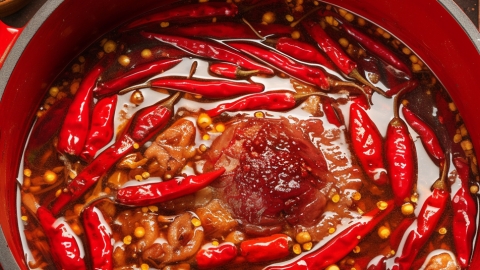Why should greasy foods be avoided before a colonoscopy?
Generally, there are several reasons why fatty foods should be avoided before a colonoscopy, including affecting bowel cleansing, interfering with the field of view, increasing the difficulty of the examination, causing gastrointestinal discomfort, and influencing the accuracy of the results. The specific details are as follows:

1. Affecting Bowel Cleansing
Fatty foods contain high levels of fat and oils, which are difficult to digest and absorb quickly within the intestines. Consuming fatty foods before a colonoscopy may leave fat and oils remaining in the intestine, forming a greasy layer that affects the effectiveness of bowel cleansing.
2. Interfering with the Field of View
Residual oils in the intestine can adhere to the intestinal mucosa, forming a hazy barrier. During colonoscopy, this oily layer may interfere with the doctor's view, making it difficult to clearly observe the details of the intestinal mucosa and affecting the accuracy of the examination.
3. Increasing the Difficulty of the Examination
Residual fatty foods in the intestine may lead to increased food residue and fecal matter, making bowel preparation more challenging. This increases the difficulty of performing the colonoscopy, prolongs the examination time, and may even require multiple flushes and aspirations to ensure a clear field of view.
4. Causing Gastrointestinal Discomfort
Fatty foods are difficult to digest and may cause slowed gastrointestinal motility, leading to discomfort such as bloating and abdominal pain. These symptoms not only affect patient comfort but may also interfere with the smooth progress of the colonoscopy.
5. Affecting the Accuracy of the Results
Residual fatty foods in the intestine may obscure lesions or abnormalities on the intestinal mucosa, leading to missed or incorrect diagnoses. For example, intestinal polyps and inflammatory lesions may be difficult to detect due to interference from fatty foods.
To ensure the smooth progress and accurate results of a colonoscopy, patients should avoid consuming fatty foods before the procedure. Additionally, it is important to follow the doctor's instructions and adequately prepare the bowel to ensure there is no residual food or fecal matter, thus providing optimal visual conditions for the colonoscopy.







